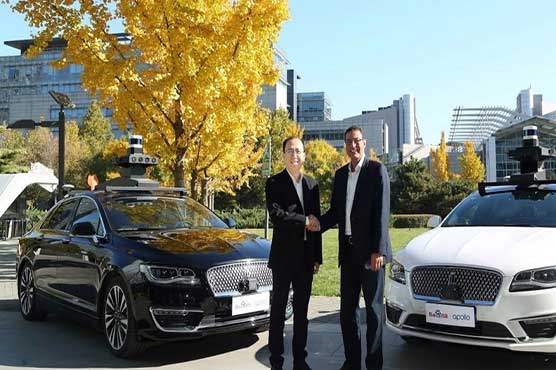Ford and Baidu partner up on testing self-driving cars in China

The goal of the project is to develop "level 4" autonomous vehicles.
BEIJING (AFP) - Chinese search giant Baidu and Ford announced a joint two-year project on Wednesday to test autonomous vehicles in China, as the latter suffers a steep drop in Chinese car sales.
On-road testing will start by the end of 2018, Ford said in a press release. The two companies will conduct tests in Beijing on roads that are specifically designated to self-driving tests.
The goal of the project is to develop "level 4" autonomous vehicles, which are fully autonomous under certain conditions, but still allow human intervention, according to a standard set by SAE International.
In the future, pending local regulations, Baidu and Ford might expand testing to other Chinese cities.
In March, Baidu CEO Robin Li predicted that self-driving cars would hit the roads in China "within three to five years".
But safety remains a top concern when it comes to driverless cars.
In March, one of Uber’s autonomous vehicles killed a pedestrian, prompting the Silicon Valley tech firm to temporarily halt its self-driving car program.
Electronic car firm Tesla has also hit a few roadbumps.
In May, a Tesla in autonomous mode hit a police car parked on the side of the road.
Sometimes known as the "Chinese Google", Baidu has made self-driving cars a priority. Last September, the Chinese tech company set up a $1.5 billion fund dedicated to developing driverless cars.
In April 2017, Baidu launched Apollo, an "open platform" on which its technologies can be shared with developers and automakers. Ford is one of the founding members of Apollo.
Last week, the US car company saw its earnings tank during the third-quarter, in part due to weak sales in China.
US trade tariffs on aluminum and steel, which have caused a $1 billion hit to company earnings, according to Ford CEO Jim Hackett, are taking a toll.

